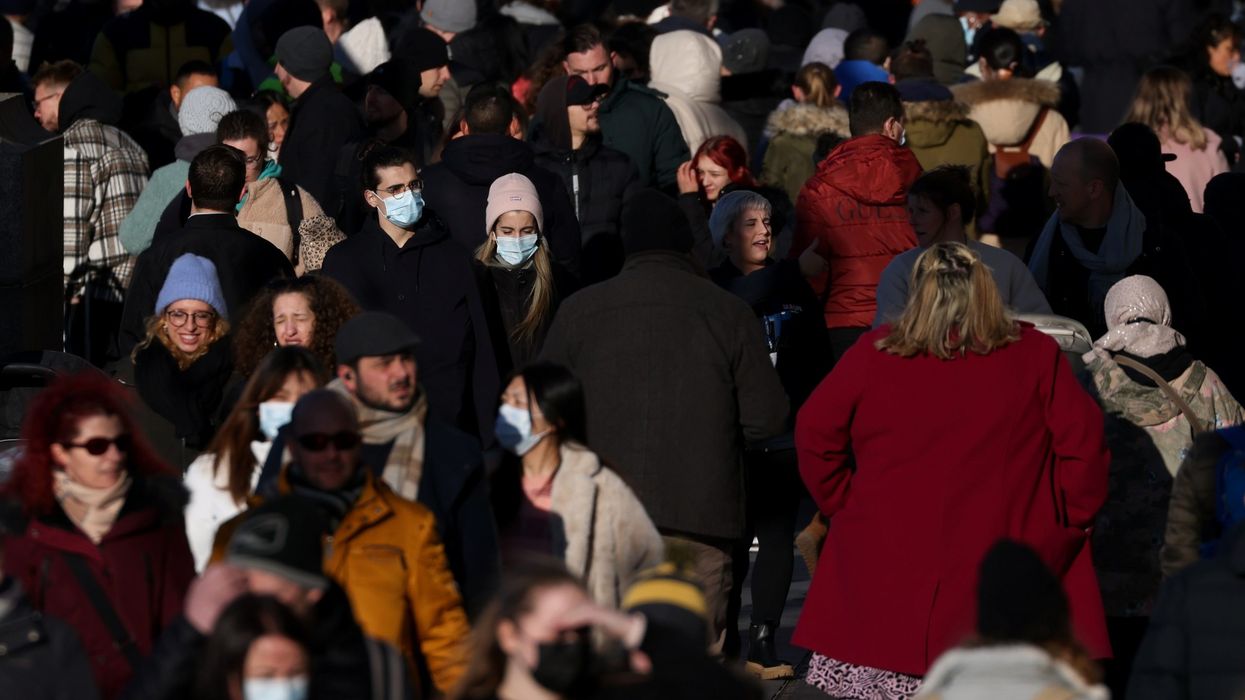THERE is no sign of a surge of the Omicron coronavirus variant in Britain so far, the chief of the UK Health Security Agency said on Tuesday (30), saying there was no rise in the proportion of tests with a quirk that distinguishes it from Delta.
Jenny Harries said there were five confirmed Omicron cases in England and 10 "highly likely" cases, but that was not a sign of an increase in "S-gene target failure" in PCR tests in Britain, which is a feature of Omicron.
"Right across the country we watch for ... S-gene target failure, which is a sort of proxy measure," Harries told BBC radio. Cases with S-gene target failure can then be prioritised for full genomic sequencing.
"We have seen no significant rise from the normal 1-in-1000 cases that we would normally have. So we're not seeing that surge currently."
Mask mandates
New mask mandates and other measures aimed at curbing the spread of the Omicron coronavirus variant came into force in England on Tuesday (30), as prime minister Boris Johnson eyes an expanded booster programme to help increase protection against Covid-19.
From Tuesday morning, face masks are compulsory on transport and in shops, banks and hair salons.
All international travellers must take a PCR test by the end of the second day after they arrive, and self-isolate until they get their result. That is in addition to restrictions on arrivals from 10 southern African countries, who have to enter hotel quarantine.
Britain has reported 11 cases of the Omicron variant so far, and while the government says this number will rise, it says it is important to slow its spread until more is known about the variant's tranmissibility and impact on vaccines.
"The measures taking effect today are proportionate and responsible, and will buy us time in the face of this new variant," Johnson said in a statement.
"Not only will today's steps help us slow down the variant's spread, but they will help us protect each other and the gains we have all worked so hard for."
Johnson has said the measures will be reviewed after three weeks, but added that the country's vaccine rollout leaves it in a better situation than this time last year, when restrictions were introduced shortly before Christmas.
On Monday (29) vaccine advisers gave the go ahead to a booster programme for all adults, and health minister Sajid Javid said there would be more details on how it would be implemented this week.
Booster shots are expected to help protect against severe disease even if Omicron is able to reduce vaccine efficacy.
"Based on everything we know, our vaccines and boosters remain our best line of defence," Johnson said.
(Reuters)




